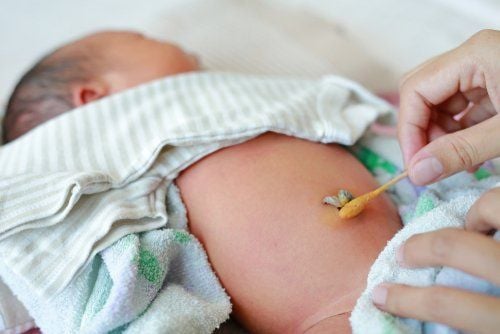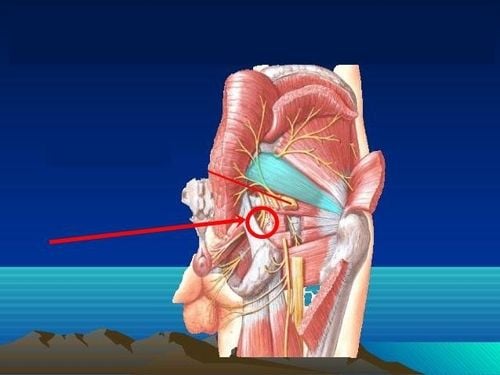This is an automatically translated article.
Having a baby must be a big turning point in everyone's life, you will not have much free time, even the previous parties were too far away to spend time taking care of children. In fact, many people wish that, if only they could learn good parenting skills before having children, the journey of raising children would be less difficult.
1. Get help after giving birth
Once you become a parent, you need to be clear about the time postpartum can be very hectic. As a result, this can affect other daily tasks that you used to do before, so you need help from many sides such as family and medical staff. While in the hospital, talk to the health care staff directly caring for you about feeding or breastfeeding advice, this is the best source of information that can guide you from what to do. The smallest things like breastfeeding or bottle-feeding, how to hold your baby, help your baby burp after a feed, unusual signs and how to care for your baby.
After you go home, you may want to hire in-home care from a medical facility or hire a nanny with experience in newborn care to help you for a short time after the birth. Besides, resources from relatives and friends should not be ignored.
2. Newborn Care
Because babies have weak immune systems, you need to spend a lot of time taking care of them from the smallest things to prevent diseases. Here are a few basics to remember:
Wash your hands (or use hand sanitizer) before caring for your baby: Newborns don't have strong immune systems yet, so this time they are at risk. infected. Therefore, parents or anyone taking care of the baby needs to make sure to wash their hands before performing care.

Cần rửa tay trước khi chăm sóc bé để đảm bảo an toàn cho trẻ
Support the baby's head and neck: Because at this time, the baby's neck is extremely weak, so parents need to support the head and neck when picking up the baby or when laying the baby down. Never shake an infant under any circumstances. Shaking can cause bleeding in the brain and even death. Do not shake to wake the infant, but instead, gently tap the baby's leg or blow gently on the cheek. Make sure the devices used to support the baby or the baby in the stroller, the seat must be firm and not harmful to the baby. Limit any activity that is too vigorous and too fast. Remember that your infant is not ready to play with slightly rough play, such as sitting on an adult's knee or tossing him in the air.
3. Cuddling and patting children
Creating a parent-child bond is perhaps one of the most exciting parts of newborn care, occurring when a parent meets a baby for the first time in the first hours and days after birth, when parents have a deep connection with their babies. The closeness of a parent holding a child can strengthen this bond.
For babies, attachment contributes to their emotional development, which also affects their development in other areas, such as physical growth. Another way to talk about bonding is that parents "love" their children more. Children will thrive on the unconditional care and love they receive from having a parent or other adult in their lives.

Ôm ấp vỗ về trẻ thường xuyên giúp gắn kết tình cảm với cha mẹ
Bonds are formed starting from actions like parents holding their baby and gently stroking the baby in different ways. Both you and your partner can also perform the "skin-to-skin" technique by holding your newborn so that his or her skin is directly touching yours during feeding or holding.
Newborns, especially premature babies, are at high risk of disease, so parents can use infant massage techniques to prevent illness. Certain types of massage can strengthen the mother-mother bond and help infants grow and develop healthily. Currently, there are many materials on infant massage in the form of books, newspapers or instructional videos on infant massage, however, before doing so, you need to consult a doctor, because it depends on each patient. In the case of the health situation of infants and the force of massage for children is not as strong as that of adults, so if it is done, parents should gently massage the baby.
Babies often like sounds like other people's voices, music and being comforted by their parents. Some toys make music, and electronic devices like cell phones are other good ways to stimulate your baby's hearing. If your baby is fussy, try singing, reciting poetry and proverbs, or reading them aloud while you hold him or him in bed.
Some babies may be unusually sensitive to touch, light or sound, and may startle and cry easily, sleep less, or turn away when someone talks or sings to them. If that's the case with your baby, limit noise and light levels to low to medium.

Massage giúp gắn kết tình cảm của bé với cha mẹ
Swaddling is an essential technique that every parent should learn. Proper swaddling will help keep your baby's arms close to his body while allowing his legs to move freely. Swaddling not only keeps your baby warm, but it also helps babies feel safe and comfortable. Swaddling can also help limit the startle reflex, which can wake a baby.
Here's how to swaddle a baby:
Parents flatten out the thin blanket they plan to wrap their baby in and fold one corner of the blanket. Place the baby on his or her back on the blanket so that the baby's head is above the fold. Wrap the left corner of the blanket across the child's body under the right arm and tuck it under the child's back. Wrap the bottom corner of the blanket up and pull it toward your head, folding the fabric under your baby's right shoulder, exposing the neck and head. Parents should not wrap the bottom corner of the blanket on the hips and knees because it is easy to bounce and wrapping too tightly can increase the risk of hip dysplasia. Then, the parent brings the right corner of the swaddle blanket to the left side and places the edge of the blanket under the child's back. To make sure your baby is not swaddled too tightly, you can put your hand between the blanket and the baby's chest, if it can, it means that the baby will be able to breathe comfortably while wearing the diaper. However, it should not be so loose that it could come off.

Quấn tã là kỹ thuật cần thiết mà cha mẹ nào cũng cần biết
Babies over 2 months old should not be swaddled, because at this age some babies may roll over while swaddled, which increases the risk of sudden infant death syndrome (SIDS). Recommended video:
Instructions for rolling a nest for babies, helping them feel like in the womb
4. Let your baby wear diapers
When using diapers, your baby will need to change diapers about 10 times a day or about 70 times a week.
Before diapering your baby, make sure you have all supplies within easy reach so you don't have to leave your newborn alone on the changing table. Necessary supplies such as:
A clean diaper Cloth clipper (if cloth diapers are to be reused) Rash lotion Diaper wipes (or warm water and clean cloth) If the diaper is wet from defecation, Lay your baby on his back and remove the dirty diaper. Use water and a washcloth to gently wipe your baby's genitals. When removing a baby boy's diaper, be careful because exposure to the air can cause him to urinate unexpectedly. If it's a girl, wipe from the bottom up first to avoid urinary tract infections (UTIs). To prevent or treat diaper rash, parents can apply or apply diaper rash cream to their children. After changing diapers, remember to wash your hands with soap and water.
To prevent or heal diaper rash, try these tips:
Change your baby's diaper often and as soon as possible after the diaper is soiled. Gently clean your baby's intimate area with mild soap and water, then apply a cream with zinc oxide, which forms a moisture barrier.

Nên thay bỉm cho bé thường xuyên để tránh hăm tã
If you use cloth diapers, wash them with detergents used for babies, unscented, and dry cloth diapers completely before use. Parents should note that they should not wear diapers or diapers throughout the day, in a day there should be a period of time when the child is not wearing a diaper or diaper, this allows the skin to breathe. If the diaper rash persists for more than 3 days or the condition becomes worse, go to a medical facility to be examined, diagnosed and treated promptly by a doctor.
5. Care for the foreskin and umbilical cord
Immediately after circumcision, the tip of the penis is usually covered with petroleum jelly to keep the wound from sticking to the diaper. Gently wipe the tip of the penis with warm water after changing the diaper, then apply petroleum jelly to the tip to prevent the tip of the penis from sticking to the diaper. The tip of the penis is red or irritated and will heal in a few days, but if the redness or swelling increases or if the blisters form pus, an infection may be present and you should take your baby to the hospital. right away.
Care of the umbilical cord in the newborn is also very important. Some doctors suggest dabbing the navel area with rubbing alcohol until the umbilical cord dries up and falls off, usually for 10 days to 3 weeks, but other experts may advise you to leave it alone and do nothing.
Parents should note that the infant's umbilical area should not be submerged in water until the umbilical cord falls off and is completely dry. Until the belly button falls off, the base of the cord will change color from yellow to brown or black, this is normal. Call your doctor if the navel area is red or if there is a foul odor or discharge.

Chăm sóc rốn thường xuyên cho bé tránh nhiễm trùng
Newborn care can be overwhelming for families welcoming a baby for the first time. However, parents and other relatives of the baby should try to learn how to take care of the child properly, because the care in the first days of life will greatly affect the development of the baby later. If possible, parents should attend prenatal classes to equip themselves with a lot of parenting knowledge.
As a key area of Vinmec Health system, Pediatrics Department always brings satisfaction to customers and is highly appreciated by industry experts with:
Gathering a team of top doctors and nurses in Pediatrics : consists of leading experts with high professional qualifications (professors, associate professors, doctorates, masters), experienced, worked at major hospitals such as Bach Mai, 108.. Doctors All doctors are well-trained, professional, conscientious and knowledgeable about young psychology. In addition to domestic pediatric specialists, the Department of Pediatrics also has the participation of foreign experts (Japan, Singapore, Australia, USA) who are always pioneers in applying the latest and most effective treatment regimens. . Comprehensive services: In the field of Pediatrics, Vinmec provides a series of continuous medical examination and treatment services from Newborn to Pediatric and Vaccine,... according to international standards to help parents take care of their baby's health from birth to childhood. from birth to adulthood Specialized techniques: Vinmec has successfully deployed many specialized techniques to make the treatment of difficult diseases in Pediatrics more effective: neurosurgery - skull surgery, stem cell transplantation. blood in cancer treatment. Professional care: In addition to understanding children's psychology, Vinmec also pays special attention to the children's play space, helping them to have fun and get used to the hospital's environment, cooperate in treatment, improve the efficiency of medical treatment.
Please dial HOTLINE for more information or register for an appointment HERE. Download MyVinmec app to make appointments faster and to manage your bookings easily.
References: kidshealth.org, babycenter.com
MORE:
What's special about the prenatal class at Vinmec? Packaged maternity services are highly appreciated at Vinmec How to take care of the umbilical cord for babies













